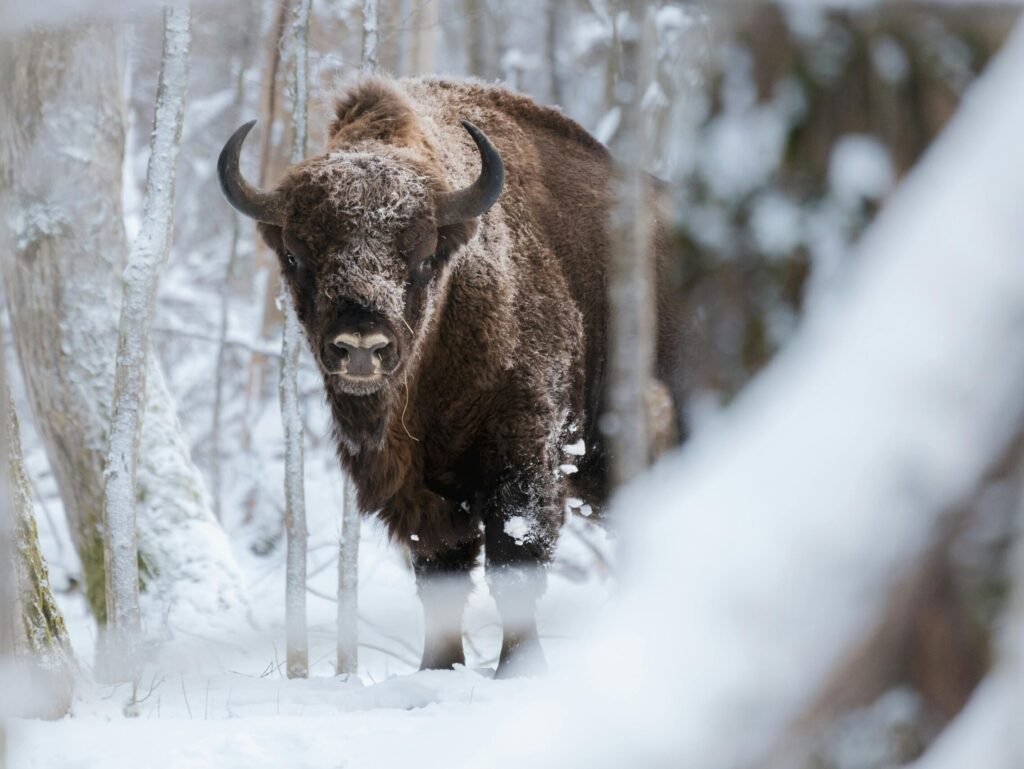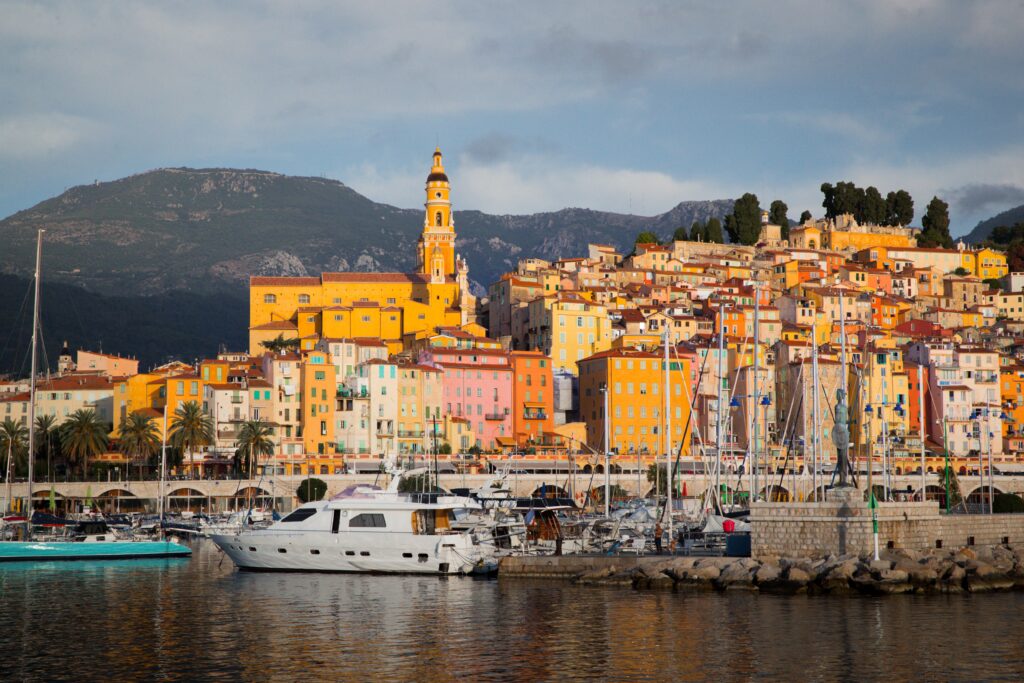VISIT Ireland
Often referred to as the Emerald Isle, Ireland is a country known for its marvellous views and its innate talent for Craic – aka the art of having a good time.
Currency
€ - Euro (1€ ≃ 1,05$ ≃ 0,86£)
POPULATION
7 millions
MAIN LANGUAGE
English, Irish
AREA
84,421 km²
TIME ZONE
UTC / UTC+1
FLAG
🇮🇪
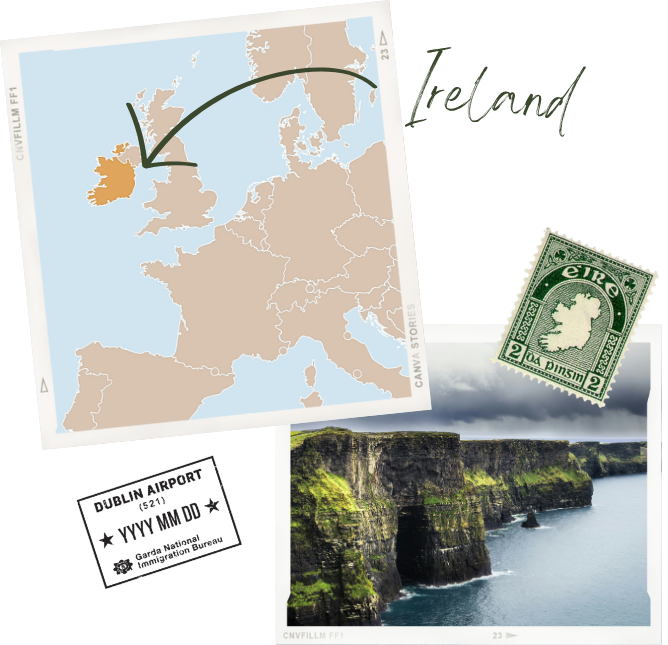

ROAD TRIP ON THE WILD ATLANTIC WAY
Measuring 1600 miles (2600 km), this scenic road is on the world's longest-defined coastal drive. This is the unmissable road if you want to enjoy the natural and wild beauty that Ireland has to offer.

HAVE FUN IN AN IRISH PUB
The hospitality and atmosphere of Irish pubs are renowned throughout the world. With almost 7000 pubs throughout the country, you won't have any trouble locating a place to drink a Guinness beer!
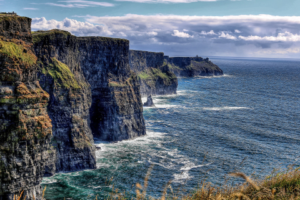
ADMIRE THE CLIFFS OF MOHER
Cliffs of Moher, unquestionably Ireland's premier tourist destination, dominate the untamed Atlantic coastline of West Clare. Not only imposing and dramatic, but this place is also a unique birdwatching spot.

VISIT GALWAY
Galway's vibrant environment, picturesque scenery, and variety of enjoyable activities, including festivals (more than 100 each year!), have helped it grow into one of the most well-liked tourist destinations in the country.
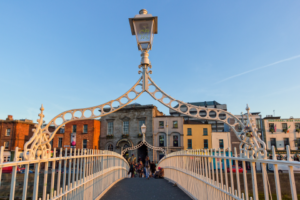
EXPLORE DUBLIN
The Republic of Ireland's capital, Dublin, is located on the country's east coast. Among its historic structures are St. Patrick's Cathedral and Dublin Castle, respectively dating to the 12th and 13th centuries.
Pick an Irish destination

Dublin
Capital of Ireland, known for its long literary tradition and warm friendliness
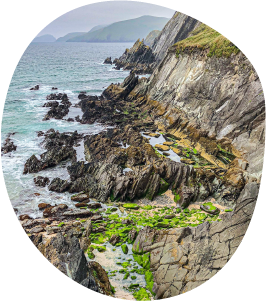
Ring of Kerry
A 179km scenic circular drive along rural Irish coasts and rugged landscapes
Prepare your trip to Ireland
💡 Why visit Ireland?
Ireland enchants visitors with its lush green landscapes, dramatic coastlines, and rich cultural heritage. From ancient castles and Celtic ruins to lively pubs and literary cities, the country is steeped in history and charm. Whether you’re road-tripping along the Wild Atlantic Way, exploring Dublin’s museums, or hiking in the national parks, Ireland offers warm hospitality and unforgettable experiences.
🪪 Do I need a visa to visit Iceland?
Citizens of the EU, USA, Canada, Australia, and many other countries can enter Ireland visa-free for up to 90 days. However, some nationalities do require a visa. It’s best to check with the nearest Irish embassy or consulate for the most up-to-date information specific to your situation.
IMPORTANT NOTE: The information below is provided merely as an indication and applies for short-term tourism visa purposes only. Before your trip to Ireland, or if you are planning to come to Ireland for another purpose (work, studies, …), check the official information on the Irish Immigration website: https://www.irishimmigration.ie/
⛅ When is the best time to visit Iceland?
❄️ December – February: Winter is mild but damp, with temperatures ranging from 2°C (36°F) to 9°C (48°F). Rain is common, but Christmas markets and cozy pubs provide a festive atmosphere. Snow is rare but possible in the mountains.
🌱 March – May: Spring is a beautiful time to visit, with blooming flowers and longer days. St. Patrick’s Day in March brings parades and celebrations across the country, especially in Dublin.
☀️ June – August: Summer is the warmest and sunniest season, with average temperatures between 13°C (55°F) and 19°C (66°F). It’s the peak tourist season, so popular spots can get busy. Outdoor festivals and coastal adventures are in full swing.
🍂 September – November: Autumn brings golden landscapes and fewer tourists. Temperatures cool gradually, and it’s a lovely time to explore the countryside and cultural events. Rain remains frequent, so pack accordingly.
🚉 How to get around Ireland?
Getting around Ireland is straightforward, though rural travel may require a car:
🚌 Buses: Ireland has a well-connected bus network. Bus Éireann and private companies like Aircoach and Citylink link major towns and cities. Regional routes reach smaller villages, though service can be limited in remote areas.
🚂 Trains: Iarnród Éireann (Irish Rail) operates the train network, connecting cities like Dublin, Cork, Galway, and Limerick. Trains are comfortable and scenic but don’t cover every part of the country.
🚗 Car Rental: Renting a car is ideal for exploring rural areas, scenic drives like the Ring of Kerry, and the Wild Atlantic Way. Note: Ireland drives on the left-hand side. An International Driving Permit (IDP) is not required if your license is in Latin script.
💳 Can I use bank cards or cash for payments in Ireland?
Bank cards (especially Visa and Mastercard) are widely accepted, including for small purchases. Some rural shops and B&Bs may prefer cash, so carrying some euros is useful. American Express is accepted in fewer places.
🔌 What type of plugs and voltage does Ireland use?
Ireland uses plug type G, the same as the UK, with three rectangular pins. The country operates on a 230V supply voltage and 50Hz frequency.
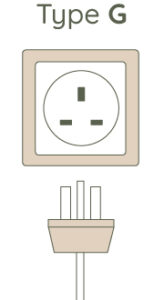
If needed, you can order an universal travel plug adapter here.
🪙 Is tipping customary in Ireland?
Tipping is appreciated but not mandatory. In restaurants, a tip of around 10% is standard for good service. Rounding up the bill is common in taxis and cafés. Some restaurants include a service charge.
🥛 Is it safe to drink tap water in Ireland?
Tap water is safe to drink throughout Ireland.
📅 When are public holidays and store closing days in Ireland?
In rceland, some stores are closed on Sundays or have reduced hours. There are 8 national public holidays in Ireland:
- New Year’s Day (January 01)
- St. Patrick’s Day (March 17)
- Easter Monday (date varies)
- May Day (First Monday in May)
- June Bank Holiday (first Monday in June)
- August Bank Holiday (first Monday in August)
- October Bank Holiday (first Monday in October)
- Christmas Day (December 25)
On these days, most businesses and offices will be closed, and many attractions may be shut or have limited opening hours.
🚦 What are the speed limits in Ireland?
In Ireland, traffic drives on the left-hand side of the road. The main speed limits are as follows:
- 50 kph / 30 mph in urban areas
- 80 kph / 50 mph on regional roads
- 100 kph /62 mph on national roads
- 120 kph /75 mph on motorways
During adverse weather (rain, fog, etc.), the speed limits are lowered.
🛡️ Is it safe to travel in Ireland?
Ireland is a very safe country to visit. Violent crime is rare, and the healthcare and emergency services are reliable. Use standard travel precautions:
Secure Your Belongings: Petty theft is uncommon but can occur in tourist areas or on public transport.
Emergency Numbers: Dial 112 or 999 for police, fire, or ambulance services anywhere in Ireland.

